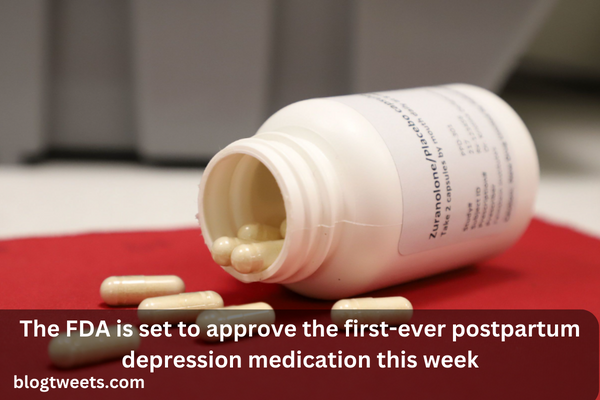Long Covid patients are facing medical debt as a result of insurance denials

Millions of people in the United States are out of work due to severe long-term Covid symptoms, and many are struggling to pay their medical bills. Here’s how to navigate the world of insurance.
Alyssa Maness, 32, was diagnosed with POTS, a nervous system disorder that her doctors believe was caused by Covid, in June 2021.
POTS, or postural orthostatic tachycardia syndrome, caused her arms and legs to become numb, as well as a pins-and-needles sensation and sudden drops in her heart rate.
Because her heart problems persisted, her doctors began a battery of lab tests in early 2022 in an attempt to better understand her long Covid symptoms.
When Maness submitted the testing to her insurance company, Anthem Blue Cross, the provider deemed it medically unnecessary and refused to pay for it. She is now responsible for the medical bills, which have already cost her more than $10,000.
“Unfortunately, I’ve just given up,” said Maness, a Ph.D. student in Sacramento, California. Her insurance appeals have all been denied. “I don’t have the mental bandwidth to even fight this anymore, because it’s become clear that it’s going to fail.”
Maness is one of several long-term Covid patients interviewed by NBC News in the United States who claim their insurance companies are refusing to provide coverage for their illness.
However, there are most likely many more. According to research from the Brookings Institution, a Washington-based think tank, up to 4 million full-time workers are out of the labour force due to long Covid.
NBC News has reached out to insurance companies for comment.
Experts say that for some people, the care they require to manage their chronic illness has resulted in medical debt that can easily reach the thousands or even tens of thousands of dollars. It’s unclear how many people are being denied coverage, but according to a paper published in May in JAMA Health Forum, the individual medical costs of long Covid could be around $9,000 per year.
Experts say the ambiguity of long Covid symptoms, which can range from extreme fatigue to loss of taste and smell to debilitating heart palpitations, is part of the problem. There is no official test to diagnose the condition, and no specific treatment is recommended. This makes it more difficult for doctors to devise an effective treatment.
Insurance companies frequently want to know if a treatment has been proven to work before they pay.
Long Covid patients can fight denied claims through appeals or going to court, which is a time-consuming and draining approach for any patient, let alone those suffering from fatigue and brain fog, according to Michele Johnson, executive director of the Tennessee Justice Center, a legal aid group that has assisted long Covid patients in obtaining health coverage.
“They’re trying to keep their job or care for their family, and there’s so much bureaucracy and red tape that they’re drowning in it,” she explained.

‘Medical requirement’
According to experts, insurance companies frequently deny claims for long-term care because they do not consider it a “medical necessity.”
According to Linda Bergthold, a former health policy researcher at Stanford University’s Center for Health Policy, the term is what insurance companies use to determine whether to approve or deny a claim.
Insurance companies have been using the term for decades, but it wasn’t given a formal framework until the late 1990s, which Bergthold helped develop.
She explained that for a patient’s care to be deemed medically necessary by an insurance provider, there must be substantial research or evidence that it works.
Because the illness is so new and still poorly understood, this is “a critical issue for long Covid,” she says.
“Research, like everything else with Covid, is brand new,” she explained. “Nobody knows exactly what works, and no one knows why some people have it longer than others.”
To be sure, there are diagnostic codes for long Covid as of 2021 — critical tools used by doctors to characterise medical diagnoses for insurance coverage, according to Dr. Alan Kwan, a cardiologist at Cedars-Sinai Medical Center in Los Angeles. These codes, however, do not always cover the myriad health problems associated with long Covid, according to him.
POTS, for example, lacks a standard diagnostic code and was only recently linked to Covid.
Doctors may work hard to get a patient a formal diagnosis of long Covid to help with insurance, despite the fact that there is no official test for long Covid and any testing that is done may not be covered by insurance.
Some patients may eventually get coverage after filing an appeal with their insurance, but only after spending hundreds of dollars, according to Kwan.
Others may not be so fortunate and may be forced to pay for the majority of their medical care out of pocket.
Amy Cook, 51, of Orange County, California, experienced this.
She received Covid in May 2022, which caused her numerous long-term health issues such as chest congestion, erratic heart rate, headaches, and visual impairment.
Cook, a full-time chief operating officer for a consulting firm, said she was bedridden for four months due to her long Covid symptoms.
Around October, her doctor suggested she try naltrexone, an opioid addiction treatment that has shown promise in alleviating long-term Covid symptoms, as well as hyperbaric oxygen. Both therapies are being tested in clinical trials as potential treatments for the illness, but neither has been approved by the Food and Drug Administration.
Her insurance company, Aetna, refused to cover the majority of the costs of the treatments.
“I’ve spent $28,000 so far, and I have more treatments coming up,” Cook said of her out-of-pocket costs.
Cook stated that she is currently in a financial position to self-fund the treatments, though she hasn’t fully recovered from her illness and the costs could easily escalate.
“I’m not sure when I’ll be able to stop,” she admitted.
Aetna spokesperson Alex Kepnes said in a statement that there is no single definition for long Covid and that coverage decisions are “based on medical necessity and evidence-based guidelines.”
“We are focused on and committed to providing our members with access to medically necessary care and treatments to help them address their conditions and improve their health,” he said.








